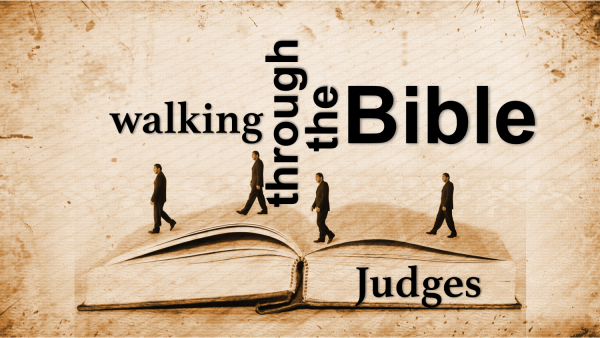The circular history of the book of Judges is based upon its continued sequence of events. For example, in Judges 2, it is said of them that, “…the people served the Lord all the days of Joshua, and all the days of the elders that outlived Joshua, who had seen all the great works of the Lord, that he did for Israel” (Judges 2:7). However, verse ten indicates that after that generation of faithful servants arose another generation that knew not the Lord or the works He had done for Israel and so, “the children of Israel did evil in the sight of the Lord, and served Baalim” (Judges 2:11). So God, in His anger, delivered them into a period of captivity, but in a matter of time Israel repented, sought forgiveness, and God sent judges (or deliverers) to bring them out of that captivity. This was the vicious cycle in which Israel found themselves because it was again in the very next chapter that Israel did evil in the sight of the Lord again and were then again delivered into the hands of captors.
The judges, from which the book derives its title, were those raised up by God to militarily lead Israel out of those periods of bondage into which they were sent for their sin. Including those found in this book and two additional from I Samuel, there were a total of fifteen men and women given this distinction by God. Those judges, including where the record of their work is found, were: Othniel (Judges 3:8-11), Ehud (Judges 3:12-30), Shamgar (Judges 3:31), Deborah and Barak (Judges 4-5), Gideon (Judges 6-8), Abimelech (Judges 9), Tola (Judges 10:1-2), Jair (Judges 10:3-5), Jephthah (Judges 11:6-12), Ibzan (Judges 12:8-10), Elon (Judges 12:11-12), Abdon (Judges 12:13-15), Samson (Judges 13-16), Eli (I Samuel 1–4:18), and Samuel (I Samuel 7-12). Some of their work is known more than others (take Deborah and Gideon for example), but overall, each of their work was essential to the continuance of the Israelite nation and the coming of the promised Messiah through their seed.
Though the author of Judges is anonymous, Jewish tradition, in addition to modern scholarship, indicates that Samuel was likely the writer, inspired by God. Its record covers “about 300 years of 7 apostasies of Israel, 7 servitudes to 7 heathen nations, 7 cries unto God, and 7 deliverances under the judges” (Dunn). So given its chronological placement in history and the time period it covers, more than likely this book was written near the close of the millennium, between 1043 B.C. and 1004 B.C.
Finding Christ in the book of Judges requires looking at similar descriptions of some in Judges when compared to Christ and His purpose. It has been said that, “Each judge is a savior and a ruler, a spiritual and political deliverer. Thus, the judges portray the role of Christ as the Savior-King of His people. The book of Judges also illustrates the need for a righteous king” (Wilkinson and Boa). The point being that Christ is seen in some way through each of the judges mentioned in this account. Each had qualities that point toward the ultimate one who will judge through delivering faithful men, and judge through condemning unfaithful men. Therefore, today, penitent men and women who thus far have lived lives of sin and worldliness can look to the ultimate Savior, who will deliver them from their evil bondage of sin.
The book of Judges, though a book of history, is so much more than just historical information. It is a book that teaches mankind that sin has a consequence, but that God is faithful to forgive when forgiveness is sought. Therefore it stands as a warning of sin, but also as a beacon of hope to all of the world that God not only is a just and jealous God, but that He is a loving and merciful God ready and desiring to forgive when penitence is shown. For Israel, sadly, their history is summed up in Judges 21:25: “In those days there was no king in Israel: every man did that which was right in his own eyes.” May such never be said of us.

